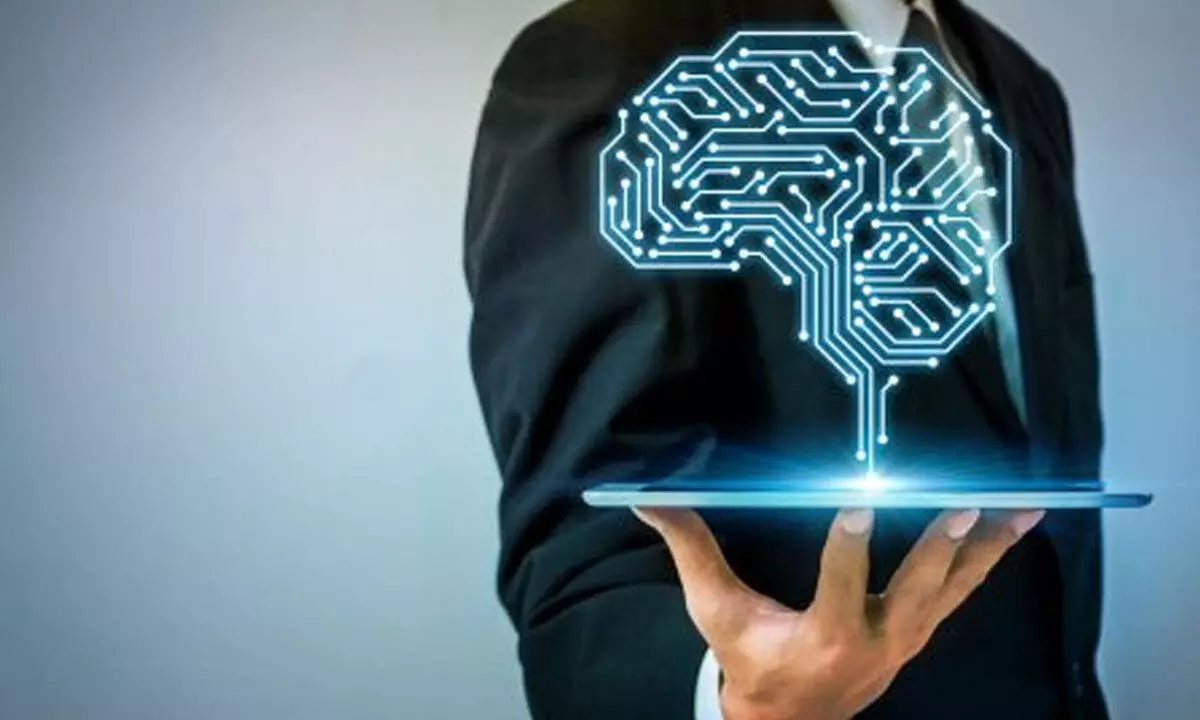AI's potential in the transition to Education 5.0

AI’s potential in the transition to Education 5.0
The pandemic accelerated the use of AI-powered technologies and may have hastened the arrival of Industry 5.0, which places a strong emphasis on personalization
The pandemic accelerated the use of AI-powered technologies and may have hastened the arrival of Industry 5.0, which places a strong emphasis on personalization. Big data and AI has the potential to transform education and are referred to as Education 4.0
AI, along with big data, blockchain, augmented reality, and the Internet of Things (IoT), has been credited with ushering in the Fourth Industrial Revolution, or Industry 4.0. The pandemic accelerated the use of AI-powered technologies and may have hastened the arrival of Industry 5.0, which places a strong emphasis on personalization. Big data and AI has the potential to transform education and are referred to as Education 4.0. The Indian EdTech market has expanded significantly and is expected to reach $10.4 billion by 2025. However, it has not fully tapped the power of Education 4.0 and thus is unlikely to be ready for Education 5.0.
The domestic EdTech market is oversaturated, with nearly 4,500 start-ups. Over the last decade, EdTech companies have primarily focused on bringing offline education online and making good tutors available from any location. They may not have fully developed solutions leveraging AI/big data that could bring in affordability and transform how quality education and coaching are delivered at scale. EdTech firms have wasted an opportunity to empower schools through digital learning modules. Instead, they appear to have created a parallel institutional structure. The current solutions are not only expensive, but they are also causing a digital divide. Middle-income families cannot bear the additional burden because they have already spent a significant amount of money on their child's regular schooling.
It is therefore understandable why the sector has begun to experience stress as pandemic-related limitations loosened and students returned to traditional school settings. With such a young population and a rapidly growing smartphone user base, the country is uniquely positioned to benefit from these technologies. Many analysts believe AI-enabled technologies can assist the country in meeting UN SDG 4 (ensuring inclusive and equitable quality education to promote lifelong learning opportunities for all). Even as Education 5.0 approaches, the Education Industry must be ready to assist the country in achieving these objectives and truly seizing the power of Education 4.0.
Bringing Education 4.0 to Action
AI-enabled bespoke educational solutions are required for collecting rich data from students and extracting relevant insights. Furthermore, learning processes must be broken down into the smallest units possible. This allows thousands of users' patterns, outcomes, successes, and failures to be understood. Following that, AI can be used to lay the groundwork for innovative, customised, and cost-effective interventions for learners.
Using AI and ML, Intelligent Tutoring Systems can be created to guide students along individualised learning pathways while providing step-by-step tutorials. Topics in structured subjects such as Math and Physics have to be customised and personalised for each student. Instead of coaching in all of Physics, for instance, support can be given in a particular subtopic, based on the pattern of problems a student has been having, using a precise, nuanced understanding of each student's strengths and limitations.
No matter who or where they are, AI may offer important insights for understanding precisely what individuals need to study and when, as well as their competitive position in peer groups. For those getting ready for admission exams, this can be extremely helpful. When correctly planned, specialised, targeted support services will be more modular and hence less expensive. The proper AI-driven solutions can also combine data and information from classroom and normal school settings to offer deeper insights into each student's needs and learning progress. As a result, it may enable educators to perform better in educational settings.
New-age technologies are also causing a change in all industries around the world, rendering existing skills obsolete. As a result, students must acquire specialised skills to meet the requirements of Industry 4.0. AI, ML, robotics, data science, coding, blockchain, automation, and other skills are now necessary to remain relevant. EdTech must transform its courses and curriculum to prepare students for the emerging smart industrial age.
The pandemic hastened the emergence of Industry 5.0, which makes it even more crucial for the Indian EdTech sector to reevaluate its direction and fully realise the potential of Education 4.0 to advance toward more personalization. Innovation is needed to address challenges of access and equity as well as to make learning more interactive and enjoyable for today's youngsters with short attention spans. Even though the EdTech industry may not be able to solve the digital divide on its own, it can look for technologies that can close the gap and help India benefit from its economic growth.
(The author is a founder and CEO at Learnbay)









